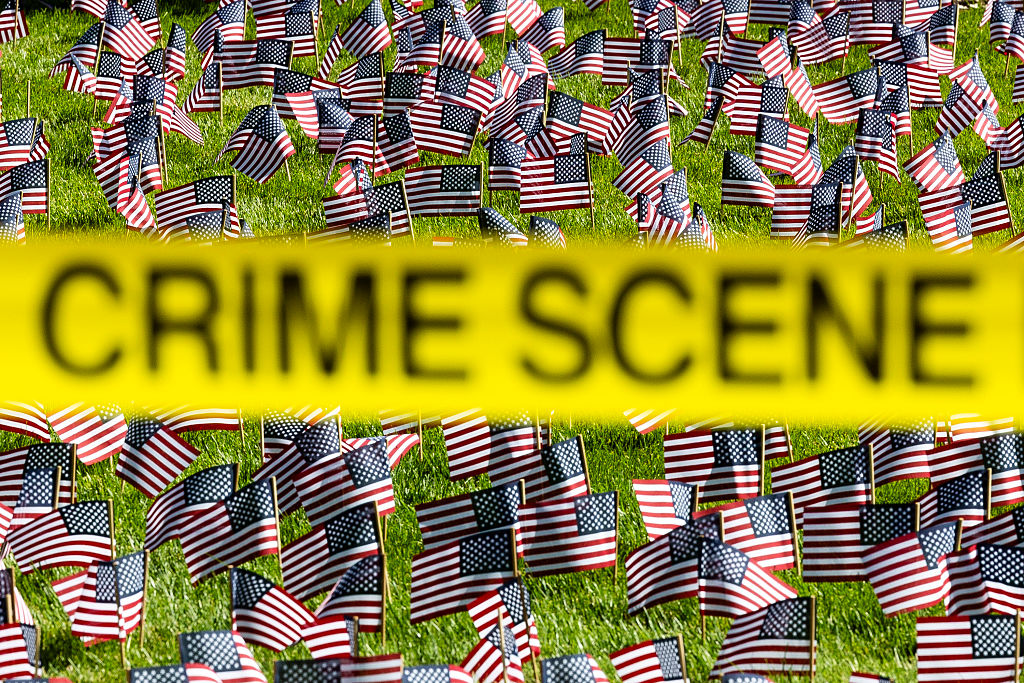Getting wise to literary ghosts
On a recent Saturday afternoon, in the town of Pawling, N.Y., a bookstore held a rather unusual signing for local author Chris Newman.
He was signing his name on a book that has William Caunitz's name on it.
Chris Newman, you see, is a ghost -- a ghostwriter, that is, reports CBS News Sunday Morning Correspondent Erin Moriarty. Even though he worked for more than a year on the novel Chains of Command, William Cauntiz is the name on the cover. To see Newman's name at all, you have to look very closely on the copyright page.
"I think, from a publishing standpoint, they believed (Caunitz) was the guy who was the huge New York Times best-selling writer in the '80s, that his is the name that would probably promote the most sales," says Newman. "And it was a marketing decision, which was fine."
Caunitz, a former New York City cop, is best known as the author of 1 Police Plaza, which sold over a million copies. When Caunitz died in 1996, leaving 100 pages of an unfinished novel, the publisher asked Newman to complete it.
"Bill had done an awful lot for me," explains Newman. "And me being able to pay that back somehow or another seemed like a kind of fun idea. I said, 'Sure, send me the stuff.'"
Newman ended up writing about three quarters of the book. But that's not something the publisher is anxious for the reader to know.
Not Newman.
"I'm kind of relieved, in a funny way, that some of it's been unmasked," he says. "It seems almost fraudulent to not tell somebody that someone else wrote three quarters of a book."
But it happens all the time. Of course, it's no surprise that celebrities get help to write their tell-alls. But a far lesser-known practice is the use of a ghostwriter to create fiction. A well-known name is placed on the cover, while the actual writer becomes a true ghost, and disappears into thin air.
For instance, Donald Bain is a man who makes a very good living as a ghost. And he is not about to divulge many secrets.
"You'll find a writer will become very successful with a first or second novel," says Bain. "And they get busy being famous, you know, and they'll turn to a ghost."
But do they tell their readers?
"No, no, no. Of course not. It's understood that I will not do that It's an ethic of ghostwriting."
But Bain will admit to being the man behind Coffee, Tea, or Me, a book that sold 5 million copies worldwide and was supposedly written by two flight attendants.
"No, it wasn't," says Bain, with a laugh. "It was written by me."
He did all the writing, while the flight attendants went on the book tour and got all the credit.
Also, for years, there have been whispers in the publishing industry that Bain has helped write some of Margaret Truman's novels. The daughter of former President Harry Truman, her name appears on more than a dozen mysteries.
But Bain says he has not written any of Truman's books, although he adds, "We talk about books. I've given her some manuscripts of mine. I've looked at some of hers."
And he admits that, even if he was writing for Truman, he could not say so.
Before Lucianne Goldberg became infamous as the book agent who convinced Linda Tripp to tape her conversations with Monica Lewinsky, she had a much lower profile as a ghost for what she says are well-known fiction writers.
"It's one of the dirty little secrets of publishing... I won't name the names because I'm not rich enough to be sued for it," she says.
But because of this code of silence, the person whose name is on the cover can unabashedly take credit for a book without any mention of the writer who did much of the work.
Ivana Trump twice went on tour to promote the works of fiction that bear her name. Actually, she did do some writing but relied heavily on a ghostwriter. You don't see that spelled out anywhere between the covers.
Isn't that a little nervy?
"Well, whoever said Ivana Trump wasn't nervy?" Goldberg replies. "That's the whole point. That's why her publisher picked her. Here's a nervy person who will get out on the road and promote this book. That's all they're looking for."
And as for the question of whether people who buy these books are getting ripped off, Goldberg says, "No, no. There's nobody marching in the street to stop this. There's no outcry. I don't see people with picket signs saying 'No More Ghostwriters.'"
Maybe not, but they are filing lawsuits.
Last month, a class action suit was filed against the publisher of the book McNally's Dilemma. The name of Lawrence Sanders is prominently displayed on the front cover, and praise for his work is on the back.
Only in a tiny mention on the copyright page does the reader learn that Sanders didn't write it at all. Lawrence Sanders died in 1998.
Attorney Russel Beatie Jr., who filed the lawsuit, says it all comes down to greed, that Penguin-Putnam and other publishers are deliberately misleading readers to make a sale.
Says the attorney, "It's a basic fundamental concept of business in America. The consumer is supposed to know what they're buying. And if you don't tell the truth about who wrote the thing, then you really ought not to keep althe money you got when you sold it."
No one at Penguin-Putnam was willing to go on air to discuss this practice, but publishers often use ghostwriters to keep a well-known dead author alive commercially.
Take V.C. Andrews. Her name continues to appear on new books, more than 13 years after her death. But if the publisher is hoping to keep William Caunitz writing, he won't be able to rely on Chris Newman as his ghost.
Newman has gone back to writing his own gritty police thrillers from his tiny studio outside his home in upstate New York, even though he made more money with the Cauntiz book than any single novel under his own name.
It's not greed that drives this author, but pride. It's possible that Chris Newman wants to achieve under his own name what, so far, he has only managed to do as William Caunitz: a rave review in The New York Times.
Produced for Sunday Morning by Estelle Popkin



